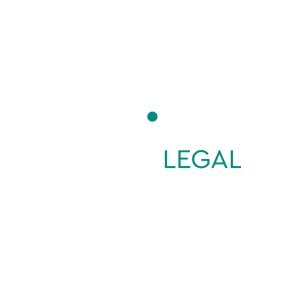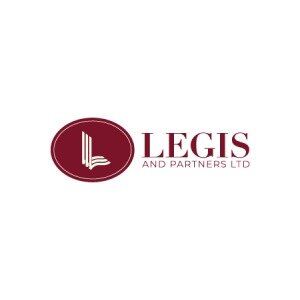Best Tax Increment Financing Lawyers in Mauritius
Share your needs with us, get contacted by law firms.
Free. Takes 2 min.
Or refine your search by selecting a city:
List of the best lawyers in Mauritius
About Tax Increment Financing Law in Mauritius
Tax Increment Financing (TIF) is a public financing method that is utilized for infrastructure and community-improvement projects in many countries. In Mauritius, TIF is designed to facilitate the funding of redevelopment and infrastructure projects by redirecting future tax revenues generated by the increase of property values within a designated area. This approach aims to stimulate economic development and improve urban environments by providing essential funding for projects that might otherwise be financially unfeasible.
Why You May Need a Lawyer
Engaging with Tax Increment Financing can be complex due to the different financial, legal, and regulatory elements involved. Here are common situations where you may need legal help:
- Project Development: When planning to develop or finance a project using TIF, legal guidance is crucial to structure agreements and ensure compliance with local regulations.
- Taxation Issues: Understanding how TIF districts impact property taxes and revenue distribution can benefit from expert legal advice.
- Regulatory Compliance: Ensuring that your project meets all municipal and environmental standards is essential, and a lawyer can help navigate these requirements.
- Dispute Resolution: If disputes arise regarding TIF agreements or tax assessments, legal representation may be necessary to protect your interests.
Local Laws Overview
While Mauritius does not have a long-standing tradition of Tax Increment Financing as seen in other jurisdictions, there are key legal aspects to consider:
- Designation of TIF Areas: The government identifies and designates areas where TIF can be used, often areas requiring significant redevelopment.
- Legislative Framework: Specific regulations and guidelines dictating the use, structuring, and reporting of TIF projects must be adhered to.
- Public Participation: TIF projects often require community engagement, public hearings, and transparency to gain necessary approvals.
- Revenue Allocation: Laws dictate how increment revenues can be used and ensure they are allocated according to the project’s financial agreements.
Frequently Asked Questions
What is Tax Increment Financing?
Tax Increment Financing is a development tool that captures the future tax benefits of real estate improvements to pay for the present cost of those improvements.
How does TIF work in Mauritius?
In Mauritius, TIF works by designating areas for development whereby increased property taxes from rising property values are used to fund infrastructure improvements.
Who benefits from TIF?
Both developers and local governments benefit as it provides funding for infrastructure, leading to increased investment and economic development in the area.
Can residential areas be included in TIF districts?
Yes, residential areas can be part of TIF districts if they meet the criteria of needing redevelopment or revitalization.
Is community approval necessary for TIF projects?
Yes, community input is often a critical part of the planning and approval process for TIF projects.
Are there risks associated with TIF?
Yes, potential risks include project failure to generate expected property value increases, resulting in lower tax increment revenue.
What legal documentation is required for TIF projects?
TIF projects require plans, feasibility studies, financing agreements, and often contracts with developers and municipalities.
Can small businesses use TIF?
Yes, TIF can be a useful tool for small businesses, particularly in redevelopment areas, by improving local infrastructure that benefits business operations.
How is progress monitored in TIF projects?
Progress is typically monitored through regular reports and audits to ensure compliance with project guidelines and financial expectations.
How can disputes in TIF agreements be resolved?
Disputes can be resolved through legal negotiation, mediation, or, if necessary, litigation with the assistance of a qualified lawyer.
Additional Resources
Here are some resources that may be valuable:
- Ministry of Finance and Economic Development: Responsible for financial policy and regulations governing public financing methods including TIF.
- Mauritius Revenue Authority (MRA): Provides guidelines and interpretations of tax laws related to TIF.
- Local Government Authorities: Offer information on community planning and zoning related to TIF projects.
Next Steps
If you seek legal assistance in Tax Increment Financing, consider these steps:
- Conduct preliminary research to understand your specific needs related to TIF.
- Consult with experienced legal professionals who specialize in tax and real estate law.
- Prepare relevant documentation regarding your project for legal review.
- Seek a lawyer who has experience with municipal projects and public financing.
- Ensure clarity on legal fees and services before proceeding with legal advice or representation.
Lawzana helps you find the best lawyers and law firms in Mauritius through a curated and pre-screened list of qualified legal professionals. Our platform offers rankings and detailed profiles of attorneys and law firms, allowing you to compare based on practice areas, including Tax Increment Financing, experience, and client feedback.
Each profile includes a description of the firm's areas of practice, client reviews, team members and partners, year of establishment, spoken languages, office locations, contact information, social media presence, and any published articles or resources. Most firms on our platform speak English and are experienced in both local and international legal matters.
Get a quote from top-rated law firms in Mauritius — quickly, securely, and without unnecessary hassle.
Disclaimer:
The information provided on this page is for general informational purposes only and does not constitute legal advice. While we strive to ensure the accuracy and relevance of the content, legal information may change over time, and interpretations of the law can vary. You should always consult with a qualified legal professional for advice specific to your situation.
We disclaim all liability for actions taken or not taken based on the content of this page. If you believe any information is incorrect or outdated, please contact us, and we will review and update it where appropriate.
Browse tax increment financing law firms by city in Mauritius
Refine your search by selecting a city.
















